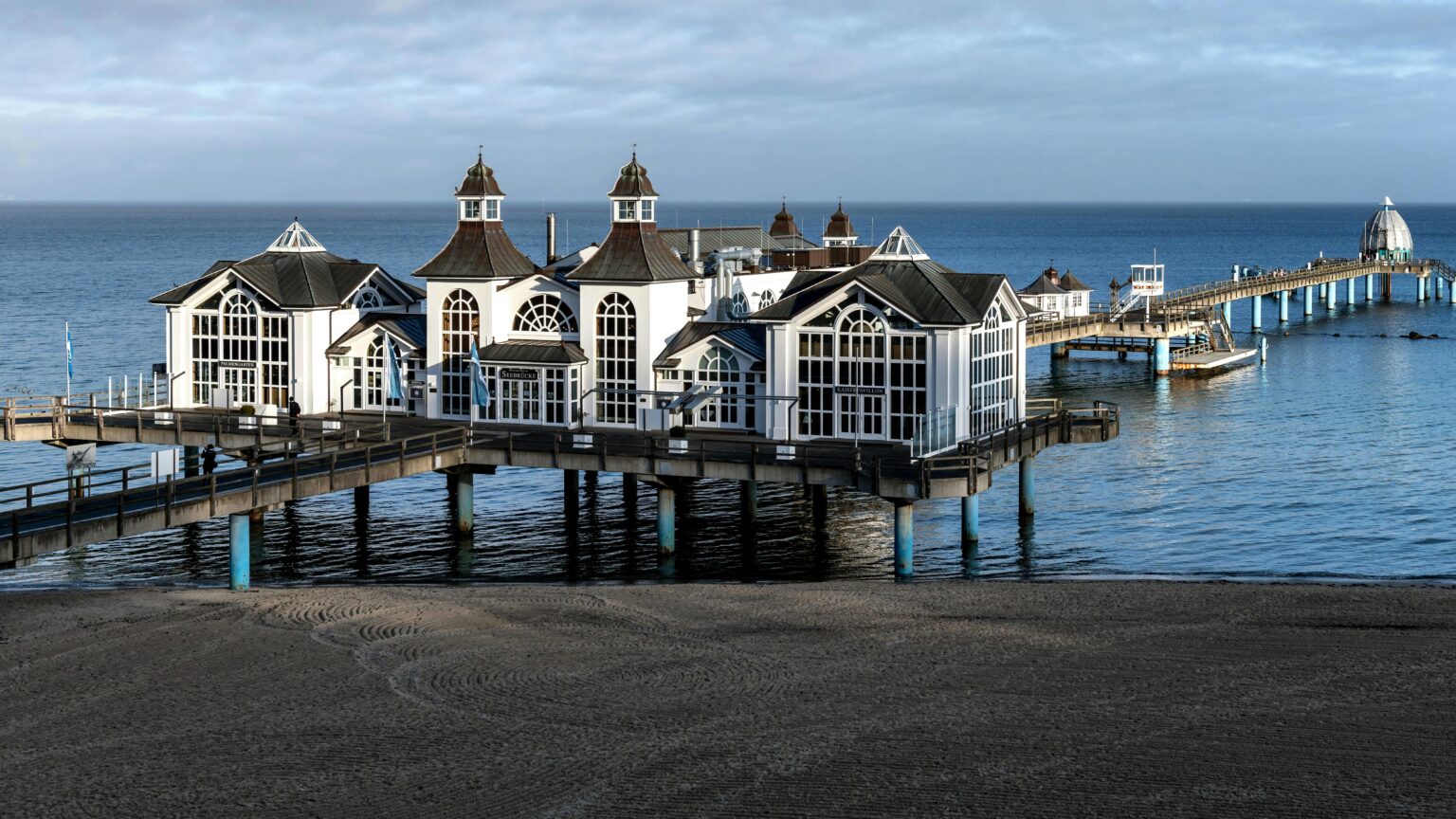If you’re a boutique hotel, aparthotel, or motel operator, then you should consider listing your hotel rooms on Airbnb. With over 111 million views per month, Airbnb will help you increase views on your inventory and potentially boost your bookings, increase revenue, and expose your property to a wider audience.
This guide will walk you through the benefits and practical steps to optimize your hotel’s presence on Airbnb.
A note to hoteliers
Many of your traditional hotel practices for managing cleaning, turnover, maintenance, and ensuring a consistent guest experience will exceed guest expectations. However, if you’re exploring short-term rentals, consider familiarizing yourself with the following topics and articles to understand industry terminology better:
- Vacation rental industry trends and challenges faced by operators
- Multi-listing distribution and marketing
- The technology landscape for vacation rental operators
- How to get reviews (and why they matter)
Why list hotel rooms on Airbnb
Airbnb isn’t just for vacation rentals; it’s a fantastic platform for hotels too. Let’s explore some valuable reasons why.
Expanded market reach: Airbnb attracts millions of travelers worldwide who are looking for unique and diverse accommodation options. With Airbnb’s massive annual advertising budget, new travelers are constantly being driven to the platform. The platform’s user base includes younger travelers, budget-conscious guests, families and larger groups, and those seeking unique, local experiences and boutique hotels. By listing on Airbnb, you can tap into these new market segments — and reach individuals who might not normally look at hotel rooms.
Increased bookings: Sites like Airbnb excel at converting visitors into paying guests. By listing your hotel on Airbnb, you can fill vacancies that might otherwise remain empty, especially during off-peak seasons. Additionally, Airbnb guests often stay longer, particularly if you offer discounts for extended stays.
Guest experience: Airbnb emphasizes personal touches and local flavor. Hotels can enhance their listings by highlighting unique features and amenities that offer a distinctive stay — such as gyms, pools, views, and turnover services. This can attract travelers looking for a blend of professional service and amenities, and personalized experiences.
Revenue potential: Hotels can tap into a new revenue stream by reaching guests who prefer the Airbnb experience over traditional booking platforms. More eyes means and more bookings means more revenue. With the right tech tools, your hotel rooms can appear as vacation rental accommodations (more on that later).
Where the hotel industry has an advantage on Airbnb
The hotel industry has an advantage on Airbnb (compared to hosts) because hoteliers already know how to efficiently and cheaply manage property turnovers and cleaning. They also have standard protocols for guest communications, ensuring prompt and professional responses. This operational expertise lends hotels the advantage of delivering reliable guest experiences on Airbnb, which will lead to consistent 5-star guest reviews.
Where hotel operators may struggle
While the benefits are great, it may take a beat before you find yourself capturing tons of bookings. Of note, potential guests may pass on your listing if your cancellation policy is too rigid. Additionally, as a newcomer, you will need to work your way to Superhost status which could make you less competitive compared to established hosts in the area.
How to list on Airbnb
Creating a listing on Airbnb is easy, but it’s important to take your time and ensure you don’t miss any details during the process. It should take 24 hours to get your listing up. However, be aware that it may take up to 72 hours for your listing to appear (to potential guests) after publishing.
Here are the steps involved to get listed (it’s the same as a regular listing):
- Create your account and get validated
- Click on the new listing button
- Write a catchy title
- Use high-quality photographs and fill out the captions
- Write a compelling description
- Fill out the correct amenities (including common areas like gyms, pools, bars, etc.)
- Set your pricing and availability
Inventory management and real-time calendar updates can be handled by your property management system and technology tools (more on that later).
What types of hotel and motel rooms can be listed on Airbnb
Airbnb welcomes listings from professional hospitality businesses, such as hotels and boutique accommodations. That said, to list as a hotel or professional hospitality business, your property must have the appropriate licenses, legal responsibility for property management, and (ideally) a unique style. Popular properties include vibrant common spaces, distinctive guest rooms, high-quality photos, and accessibility features.
Airbnb‘s standards apply to various property types, including boutique hotels, B&Bs, serviced apartments, and more. This includes:
- Standard rooms: Basic hotel rooms with essential amenities.
- Luxury suites: High-end rooms with premium features and services.
- Boutique rooms: Unique and stylish rooms that offer a distinctive experience.
- Extended stay rooms: Rooms equipped for longer stays, often with kitchenettes or additional living space.
- Family rooms: Larger rooms/suites designed to accommodate families with children.
- Budget rooms: Affordable rooms for travelers on a budget.
- Entire homes and entire places: Some boutique hotels can turn their entire inventory into a single listing for larger groups.
What types of inventory can’t be listed
Mass-market chain hotel rooms cannot be listed on Airbnb, as the platform emphasizes independent accomodations and styles. According to Airbnb, mass-market chain hotels lack the individuality and personal touches that Airbnb seeks to provide to its community.
If a listing does not meet these standards, Airbnb will notify the host to update the property type or make necessary adjustments. Listings that fail to comply may be permanently removed from Airbnb.
Before getting started: the difference between multi-unit and parent-child
Boutique hotels, aparthotels and motels each offer a different type of room. It’s important to understand how the vacation rental industry labels each type as this will impact listing strategy and software choices:
- Multi-unit listings: This refers to hotels with multiple rooms of the same type (i.e. each room is a clone of the other). The guest only sees one listing on Airbnb, even if there are multiple available in your inventory. Aparthotels, and motels are most likely to have multi-unit listings.
- Parent-child listings: The parent listing represents the entire main property, while child listings detail each specific room type available. Guests can book the “child” rooms, which makes the “parent” listing unavailable to other guests. Only “child” rooms would remain available for those selected dates. Alternatively, if a guest books the “parent” listing, the “child” rooms would turn unavailable to other guests. Boutique hotels and BnB’s are most likely to have parent-child listings
Managing this on Airbnb and other listing sites
The good news is that parent-child or multi-unit listings don’t get managed differently on Airbnb if you are using a property management software (PMS) (see next section). The PMS will make the listing unavailable when you run out of inventory (for multi-unit) or will adjust availability based on dependencies between parent and child.
Technology tools to get the most out of Airbnb as a hotel manager
To maximize your hotel’s potential on Airbnb, leveraging the right technology is crucial. You can take advantage of Airbnb’s promotional offerings, such as featured listings and special discounts, to further boost visibility. Cross-promote your Airbnb listings on your hotel’s website and social media to drive additional traffic and bookings.
But most importantly, you will want to find a Property Management Software (PMS) that works for you. However, this will require research on your part to determine which PMS has the features you need.
Property Management Software (PMS)
This is the brain of your operations and is what you will use to create, manage and operate your listings. Few PMSs for vacation rentals can effectively manage both multi-unit and parent-child listings. However, Hostfully gives you the option to manage both (and offers the key features outlined below).
When choosing a PMS, hotel operators should look for the following features:
- Channel manager: Most PMSs have connectivity with Airbnb. However, the better ones also sync directly with Booking.com, Vrbo, and others. In such cases, this expands your marketing reach beyond Airbnb, and into other channels with almost no extra effort.
- Guest communication tools: As a hotel operator, you already likely have systems and protocols in place to manage guest communications. Since the pandemic, guests have shifted their expectations of Airbnb and vacation rental stays and expect hotel-grade response times to communications. A good PMS should have a unfied inbox with direct connectivity to the listing sites. Bonuses include the option to load pre-written templates, and AI that pre-writes responses for you.
- Triggers and templates: Vacation rental guests expect at least three communications during their stay: confirmation, directions and pre-arrival information with property access details. Most PMSs have trigger and template tools. However, you should look for the ones that allow you to use Custom Fields to cut down on the number of templates you have to manage.
When choosing a PMS, look for one that integrates with your existing software, especially cleaning and revenue management tools. If you use ancillary software (other than your PMS) that isn’t typically integrated with most PMSs, opt for a PMS with an open API. This will enable you to create a custom integration.
Reviews: risks and best practices
Guest reviews can make or break your Airbnb listing. If you’re operating a multi-unit listings, this puts you in a particularly risky position as a string of bad reviews can impact your entire inventory. Here’s how to mitigate that risk as a hotel operator:
- Prioritize the basics: Cover your bases with clean and well-maintained rooms, and make sure to send prompt responses to guest inquiries.
- Consider cancellation policies: Selecting the appropriate Airbnb cancellation policy for your listings is essential for balancing flexibility and financial security. Keep in mind that while the stricter the policy you choose is, the more you can count on revenue from bookings. At the same time, by offering more flexible cancellation options to potential guests, you may secure more bookings upfront.
- Encourage positive reviews: You can add a trigger in your PMS that sends a message to the guest after they checked asking for a review. This will increase your overall number of positive reviews, which will dampen the impact of any negative ones.
- Respond to reviews: Address both positive and negative reviews. Thank guests for positive feedback and acknowledge any issues mentioned in negative reviews. Future guests will respond well to an active profile that addresses shortcomings.
Airbnb’s service fees
It’s no surprise that Airbnb charges a service fee to support its operations and services. Let’s explore the OTA’s two main fee structures: split-fee and host-only fee.
- Split-fee:
- Host fee: Most Airbnb hosts pay a 3% fee, calculated from the booking subtotal (excluding guest service fees and taxes) and automatically deducted from the host payout.
- Guest fee: Generally under 14.2% of the booking subtotal, this fee varies based on factors like booking details and duration. For cross-currency bookings, starting April 1, 2024, an additional amount may increase the guest fee up to 16.5%.
- Host-only fee:
- This fee is fully deducted from the host payout, typically ranging from 14-16%. It’s mandatory for traditional hospitality listings and software-connected hosts in specific regions. The fee may be lower for stays of 28 nights or more or higher for hosts with strict cancellation policies.
Note: VAT charges may apply to these fees depending on local laws, and Airbnb reserves the right to change service fees according to its Terms of Service.
Legal and regulatory considerations
Complying with legal and regulatory requirements is essential when listing hotel rooms on Airbnb. If you are already operating a hotel or motel, then you likely have a lot of these covered:
- Local regulations: Ensure your hotel adheres to local zoning laws, business licenses, and short-term rental regulations.
- Registration with tourism or local governments: Your hotel license may or may not cover you for vacation rental operations. Check with a local legal expert.
- Tax obligations: Understand and fulfill your tax responsibilities, including occupancy taxes and sales taxes, as applicable.
- Health and safety standards: Maintain high standards of cleanliness, safety, and hygiene to meet regulatory requirements and guest expectations.
- Insurance coverage: Verify that your insurance policy covers short-term rentals and any potential liabilities associated with hosting on Airbnb.
Conclusion
By following these guidelines and leveraging the power of technology, hotels can successfully list their rooms on Airbnb, attracting a broader audience and increasing their revenue streams. Embrace the platform’s flexibility and reach and watch your hotel thrive at the next level.







